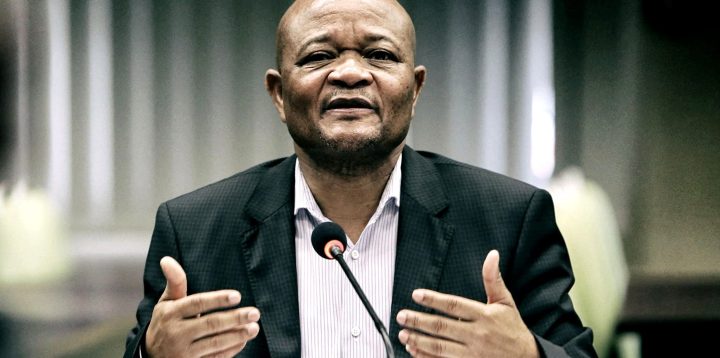WASTEWATER TREATMENT
Minister Mchunu pledges to fix ailing sewage systems responsible for polluting SA’s water

With failing sewage works polluting scarce water resources in South Africa, and up to 40% of reticulated water being lost to leaks, the Minister of Water and Sanitation, Senzo Mchunu, on Tuesday painted a gloomy picture of the water situation in the country.
South Africa’s Minister of Water and Sanitation, Senzo Mchunu, has identified the country’s failing sewage systems as a main polluter of water resources and has promised to act. He said the department was fast-tracking the anti-pollution task team to deal with the problem.
Apart from the mines, pollution from wastewater treatment plans was a major contributor to the contamination of scarce water resources in the country.
“Policies and standards to deal with pollution in these sectors are generally in place… the challenges facing the country are not due to a policy gap,” he said, “but rather non-compliance with existing policies and standards.”
Mchunu said there were 1,013 municipal wastewater treatment works in the country. Of these, 544 (54%) had authorisations in place. About 23% (236) either have not been authorised to operate or have expired licences.
“The department is progressing with verification of the authorisation status of a further 141 works,” he said. He added that since 2014, the department has investigated 598 cases related to sewage works collapsing. The investigations were conducted after complaints received from the public.
“Enforcement actions were taken by DWS against those municipalities which were found to have violated the water legislation… enforcement actions taken include administrative, civil and criminal actions.”
Using the pollution of the Vaal River system by sewage as an example, Mchunu said complaints in this regard were not handled “with focus and efficiency” in the past. He said he is now receiving weekly updates on progress in cleaning up the pollution there.
“Work is under way with regard to the pumps,” he said. “They are making progress now. They did not do so in the past.”
He said there was a meeting with the Emfuleni Local Municipality to resolve issues that “have encroached on the process”. Mchunu said there were concerns about people losing their jobs.
“Very soon [the Vaal pollution] will be a thing of the past.”
Recounting his visit to the Vaal Dam to see the extent of the pollution, Mchunu said he saw “a lot of sludge”.
He said there was a great shortage of skills and finances in many municipalities when it came to water treatment, but believed that public/private partnerships could have a major positive impact on the water sector. He said a pilot project along these lines would be launched in the Northern Cape soon.
“Let us get together and collapse the gaps and address finance issues and skills shortages… Partnerships are our answer to the lack of capacity,” he said.
Mchunu said that with the exception of the western part of the Eastern Cape (around Gqeberha), there was no water crisis in the country at the moment, but there were reticulation problems that are a “management issue” and not one of water scarcity.
Supply dams for the Nelson Mandela Bay metro are currently at 15% capacity. Mchunu said problems with water reticulation were receiving attention.
On municipalities in general, Mchunu said the country was losing 40% of its reticulated water to leaks, something that was uppermost in his mind when he called for partnerships with the private sector.
“If you have leaking infrastructure, you will never succeed,” he said. “Most municipalities do not budget for infrastructure replacement.” He added that high prices paid by the government for “not a lot of value” was compounding the problem.
The Director-General of the Department of Water and Sanitation, Sean Phillips, said areas serviced by Rand Water have experienced outages due to maintenance and repairs, as well as the unanticipated breakdown of pumps.
He said vandalism and theft hindered the water supply to communities.
Leonardo Manus, the department’s chief director for infrastructure, operations and maintenance, said the Green Drop Report, detailing the situation regarding wastewater in the country, would be released soon. DM/MC



















 Become an Insider
Become an Insider
Comments - Please login in order to comment.